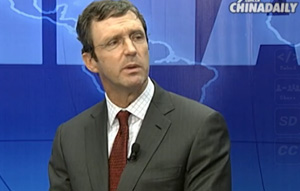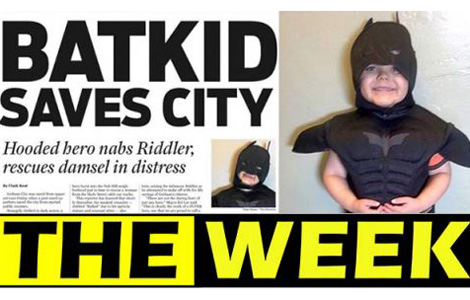Hopes rise for accord in nuclear negotiation
Updated: 2013-11-21 01:37
By Zhao Yanrong (China Daily)
|
||||||||
Direct contact between Teheran and world leaders cited as positive force
|
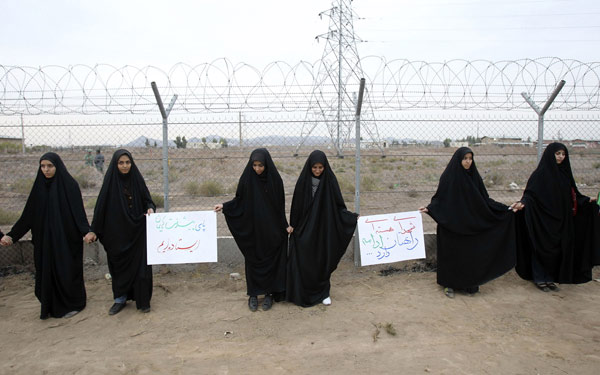 |
|
Iranian students form a human chain during a protest to defend their country's nuclear program outside the Fordo Uranium Conversion Facility in Qom, in the north of the country, on Tuesday. Provided by Agence France-Presse |
Hopes have risen of a breakthrough preliminary deal in talks on Iran's nuclear program, observers said, as the second round of negotiations within a month between Iran and the world's major powers began on Wednesday.
While experts said every side has practical demands for the settlement of the Iranian nuclear issue, they warned that the talks might stumble if not enough flexibility is shown during negotiations.
Officials and diplomats from the five permanent members of the United Nations Security Council, plus Germany and Iran, gathered in Geneva for a two-day meeting in Geneva. The previous round of talks took place earlier this month, with participants saying they were close to a deal.
Before the talks restarted, Iran and other major world powers gave off positive signals. Iran's supreme leader Ayatollah Ali Khamenei voiced support on Wednesday for the negotiations, saying that Teheran wanted friendly ties with all countries, including the United States.
But he insisted there are limits to concessions that Iran will make in exchange for an easing of the sanctions that are choking its economy.
Iranian President Hassan Rouhani has also talked on the telephone with other leaders from a few of the countries involved in the multilateral talks.
President Xi Jinping, who had a late night conversation with Rouhani on Tuesday, encouraged the Iranian president to seize the moment at the negotiations, Xinhua News Agency reported.
Xi said Beijing would continue to play a positive role in the multilateral talks, and create comprehensive, long-term and appropriate conditions to solve the Iranian nuclear issue.
Rouhani also spoke to British Prime Minister David Cameron on Tuesday. "(Cameron) became the first British prime minister to call the Iranian president in more than a decade today when he spoke to President Rouhani this afternoon, ahead of this week's nuclear negotiations in Geneva," Downing Street said in a statement.
On Monday, Russian President Vladimir Putin also said to Rouhani that there is a "real chance" of a deal being struck when the talks resume in Geneva this week.
These exchanges showed Iranian new government's positive attitude to negotiate with world powers, said Li Guofu, director of the Center for Middle East Studies at the China Institute of International Studies.
Since Rouhani took office, he has adopted a very flexible foreign policy to improve relations with the West. The direct talks with other leaders created a better possibility to achieve a positive outcome from the new round of talks, Li said.
US President Barack Obama urged US senators on Wednesday to hold off from proposing more sanctions against Iran to allow time for world powers to complete a deal on Iran's nuclear program.
Western media said Iran's insistence that its right to enrich uranium be recognized, and disagreement over its work on a heavy-water reactor near Arak, are the major reasons behind the failure of the talks to reach a deal.
Li said all parties are very likely to reach certain agreements this week.
On Nov 11, Iran and the International Atomic Energy Agency reached agreements to grant UN inspectors "managed access" to a uranium mine and a heavy water plant within three months, and will also provide information to the agency about its planned new research reactors and sites for future nuclear power plants as well as additional uranium enrichment facilities.
"Iran has been improving the transparency of its disputed nuclear program over the last 10 days. This movement can somehow ease the concern from the West," Li said.
Liu Zhongmin, deputy director of the Middle East Studies Institute at the Shanghai International Studies University, said Iran is driven by an urgent necessity to get the economic sanctions eased through talks, as Iran's oil exports have experienced large decreases over the last two years, and the local currency has also depreciated almost by half.
"Rouhani knows that negotiating with world powers is the only way to rescue its economy. He wants to win more kindness from his western counterparts," Liu said.
For the US, solving the Iranian nuclear issue will also be a continuation of the US's strategy in the Middle East, he added.
"The US has withdrawn troops from Iraq, and will also withdraw its troops from Afghanistan next year. To solve the Iranian nuclear issue is part of the US national interest in the region," he added.

 35 die in oil pipe blast
35 die in oil pipe blast
 Feel-good stories ask questions of us all
Feel-good stories ask questions of us all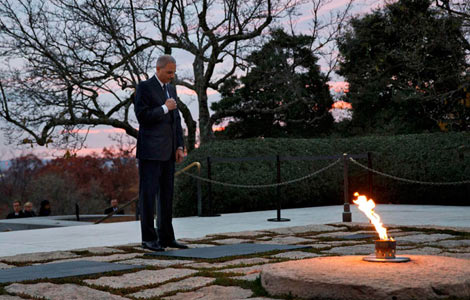
 US marks the 50th anniversary of JFK's assassination
US marks the 50th anniversary of JFK's assassination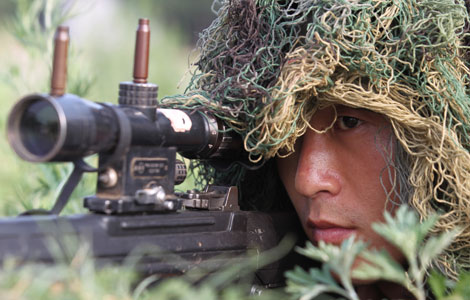
 No holds barred training for elite force
No holds barred training for elite force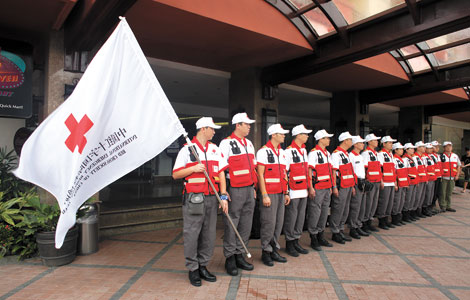
 Chinese medical teams reach Philippines
Chinese medical teams reach Philippines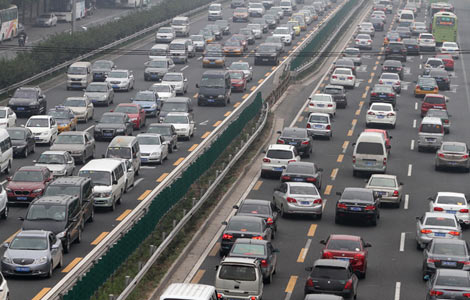
 Beijing won't enforce 'idling engine' rule
Beijing won't enforce 'idling engine' rule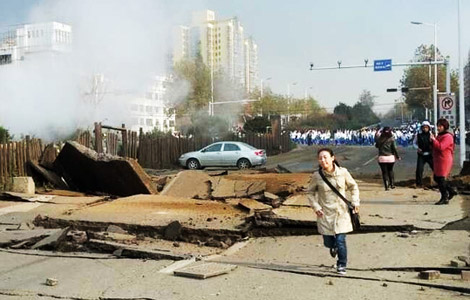
 Oil pipeline blast leaves 22 dead in E China
Oil pipeline blast leaves 22 dead in E China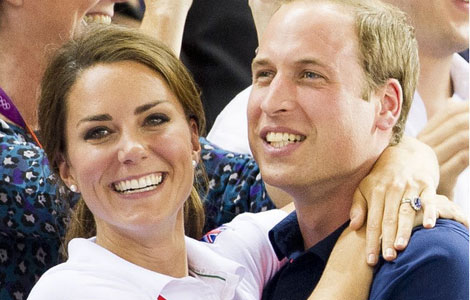
 Good couples get better
Good couples get better
Most Viewed
Editor's Picks

|

|

|

|

|

|
Today's Top News
Newtown investigation report to be released
Reform to stimulate growth
Li expected big deals in Romania
Envoy hails typhoon aid to Philippines
Conditions set for future CE
Wang named Asia's businessman of the year
Bitcoin rollercoaster hits China
US President sets new date for Asia visit
US Weekly

|

|
